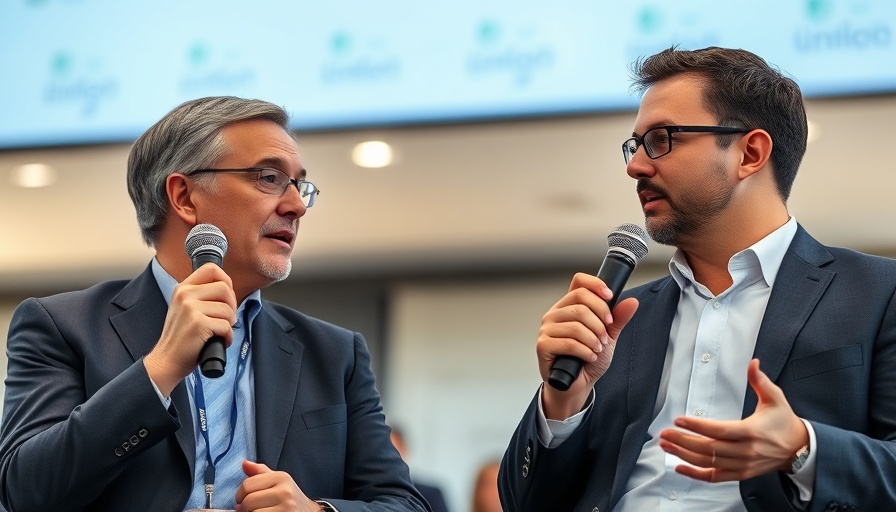
Understanding the Musk-Altman Legal Saga
The ongoing legal battle between Elon Musk and Sam Altman is more than just a corporate dispute; it encapsulates the broader tensions surrounding the direction of artificial intelligence (AI) development. At the heart of the matter is the shift of OpenAI, co-founded by Musk and Altman, from a nonprofit to a for-profit model—a shift that Musk argues contradicts the organization’s founding principles, designed to advance AI for the greater good.
The Joint Decision: A New Path Forward?
In a surprising twist, both parties have agreed to expedite their trial regarding this contentious transition, proposing a date in December. This decision symbolizes a rare moment of cooperation in a feud that has dominated headlines since Musk’s departure from OpenAI’s board in 2018. Musk's legal actions suggest a desire to steer the organization back to its original mission, while Altman's defensive stance hints at the necessity of expanding OpenAI's financial resources in the highly competitive AI market.
Financial Implications and Public Interest
The court’s agreement to accelerate the trial is primarily driven by the need to address significant public interest issues raised by Musk’s allegations. Paying heed to these claims, the court acknowledged the urgency in reviewing OpenAI’s restructuring. In Altman’s words, they intend to maintain a robust nonprofit component within the business, ensuring that commercial pursuits do not overshadow the mission of responsible AI development.
What This Means for the AI Landscape
This legal battle is emblematic of a larger question in the tech world: What is the right balance between profit and purpose? As OpenAI explores ways to consolidate its initiatives and attract investment—highlighted by discussions of a potential $40 billion fundraising round with SoftBank—Musk's criticism raises crucial considerations regarding the ethical dimensions of AI advancement.
Public Perception and Competitive Dynamics
Over time, public sentiment has played a vital role in the development of technology firms. Musk's past involvement with OpenAI adds a layer of complexity to the narrative. The ongoing disagreement could influence how potential investors perceive OpenAI and its commitment to ethical AI standards. Ironically, while Musk seeks to portray himself as a guardian of ethical AI practices, his own venture, xAI, is emerging as a competitor aiming largely for similar territories.
What's Next for Musk and OpenAI?
As the trial date approaches, further developments are imminent. Observers will closely watch how both Musk and Altman navigate this critical juncture. The outcome may define not only the future of OpenAI but also set a precedent for other tech companies grappling with similar ethical and operational dilemmas. Should Altman’s defense against Musk's lawsuit succeed, it could embolden more companies to pursue profit-driven models without fear of backlash.
Calls for Ethical Responsibility in AI Development
Ultimately, Musk’s allegations could serve as a wake-up call for the entire AI industry. The notion that profit motives could lead to compromised ethical standards is a recurring theme in discussions about technology’s influence on society. For stakeholders, understanding this rivalry is vital for informed decision-making in navigating the evolving landscape of AI.
Staying informed about these developments in the AI sector is crucial, as they raise important questions about the direction of technology and its implications for the future of society. For deeper insights into Musk's ongoing rivalry with OpenAI and its impact on AI, continuing to follow this story is essential.
 Add Row
Add Row  Add
Add 




 Add Row
Add Row  Add
Add 

Write A Comment